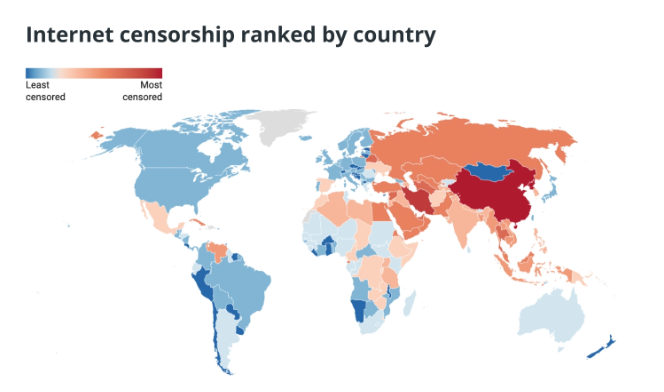
VERTU IRONFLIP: A Perfect Fusion of Intuitive Design and Heroic Colours
VERTU IRONFLIP, a folding screen mobile phone for high-end men, not only has the top technological configuration, but also the
On Web2 (Twitter and Facebook), users do not own their own content or followers. This is not the case on Web3, where our company supervisors will become powerless.

Today’s social media landscape is dominated by Web2 companies, primarily Meta (Facebook) and Twitter. These companies collect data from billions of users and generate billions of dollars in revenue from user-generated content. While this is great for the companies and their shareholders, there is a cost for the average user and professional content creators.

But in the near future, decentralized social media (also known as Web3) is likely to end this old model by returning power to users.
Since platforms like Facebook, Instagram, and Twitter are centralized, users are at the mercy of the company owners, who demand compliance with their platform policies. If users fail to comply, they may lose the content and followers they have spent years building in just a matter of seconds.
A famous example is Twitter’s ban on former President Donald Trump. While you may argue with Trump’s views, the decision of Twitter’s management did not include the millions of Twitter users who make the platform so valuable. It shows how little control Web2 users have over Twitter’s decisions related to its content, even though they are the ones creating value for the company.
The beauty of Web3? Company bosses will no longer be able to decide who can use their platforms.
Another issue with Web2 social media is that it is characterized as a “walled garden”. If you have a million followers on Instagram and want to start an account on YouTube, you have to start from zero followers. There is no way to move your audience because they are connected to the platforms, not you. This even applies to platforms owned by the same company, such as Facebook and Instagram.

Web3 introduces solutions that reduce the number of intermediaries, creating an open ecosystem that enables new forms of digitalization and empowers individuals with more control not only over their content but also over their followers.
Multiple platforms have launched products that could potentially replace the social media industry on Web2. These include the Lens Protocol by the Aave team and DeSo, which is backed by Andreessen Horowitz.
Both are built for hosting decentralized social media applications. They already have many real-time applications, including Lenster, Phaver, Iris (decentralized Twitter), and LensTube (decentralized YouTube).

How do they work? For example, with Lens, users can use non-fungible NFTs to directly link their content and followers to a digital wallet. This means zero dependence on individual platforms, as they have cross-platform access to their followers.
If a user posts content, it will automatically be shared on all the platforms they use. Moreover, because their followers are cross-platform linked, they have the same number of followers on each platform.
If a new platform emerges, users do not have to rebuild their audience. In Web2 terms, it’s like having an account that directly links to the internet, rather than an account that links to Facebook’s closed ecosystem.

Another feature of Web3 social media is that users can profit directly from their work, rather than generating income through advertising. This model encourages users to post better content. It is simplified by allowing creators to set fees for “collecting” their posts – or for following them. Then, the revenue goes directly to the creators, not the platform.
Some critics argue that Web2 social media has such a leading advantage that it is impossible for Web3 social media to catch up. However, the reality is that the benefits of decentralized social media are so significant that major content creators will transform and bring their audience along with them.

There are already many examples of celebrities having their own social media platforms because corporate platforms no longer allow them to share their content (heavy throttling). Web3 provides an obvious solution for an increasing number of people who are banned from using Web2.
Providing ownership over one’s content and followers? A simple way to generate income from their work? Connecting all of this with easy-to-use NFTs? What’s there to complain about? Blockchain technology has brought us a social media space that rewards users instead of platforms, and it’s better than anything we’ve ever dreamed of in the past.
The content provided is extracted and translated into English as follows: “This article is reprinted from 8btc and does not represent any views of our company, nor does it constitute any investment advice. Please treat it with caution.”